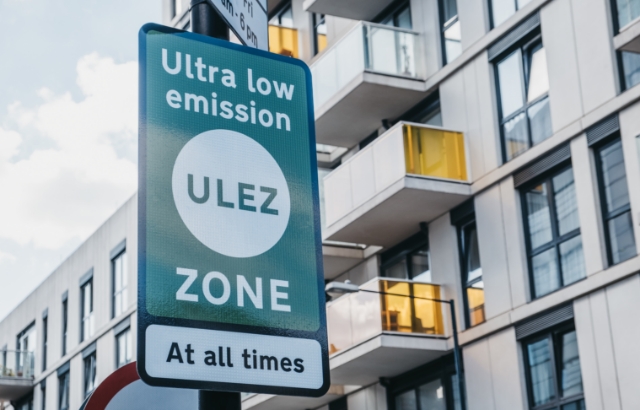London Children switch to walking and cycling to school after ULEZ introduction
Four in ten children in Central London who usually travelled to school by car switched to walking, cycling, or public transport following the introduction of the Ultra-Low Emission Zone (ULEZ), according to a new study from a team led by QMUL and University of Cambridge researchers. In a comparison area with no ULEZ, two in ten children made this switch over the same period.

The ULEZ was introduced in central London in April 2019 to help improve air quality by reducing the number of vehicles that did not meet emissions standards. According to Transport for London, the ULEZ introduction reduced harmful nitrogen oxides by 35% and particulate matter by 15%, and the number of vehicles on the roads fell by 9% in the first 10 months.
As part of the CHILL (Children’s Health in London and Luton) study, researchers assessed the impact of the ULEZ on how children travelled to school. The work compared data on almost 2000 children attending 84 primary schools in London and a control area (Luton), collected prior to ULEZ implementation and in the year after. Results showed that 42% of children in London who travelled by car prior to the ULEZ introduction switched to active modes, while 5% switched from active to inactive modes. In the control area (Luton), 20% of children swapped from car travel to active modes, and 21% switched from active to car travel. Children at London schools within the ULEZ were 3.6 times as likely to shift from car travel to active travel modes compared with those in Luton. Uptake of active travel to school was particularly associated with children living further from school.
Car travel contributes to air pollution, a major cause of heart and lung diseases, including asthma attacks. It also limits opportunities for physical activity, hindering childhood development, affecting children’s mental health, and increasing their risk of obesity and chronic illnesses. Despite UK guidelines recommending an hour of daily moderate-to-vigorous physical activity for school-aged children and adolescents, only 45% of children aged 5-16 met these levels in 2021. One in three children aged 10-11 in the UK are overweight or obese.
Joint senior author, WIPH Professor Chris Griffiths said: Establishing healthy habits early is critical to healthy adulthood and the prevention of disabling long term illness, especially obesity and the crippling diseases associated with it. The robust design of our study, with Luton as a comparator area, strongly suggests the ULEZ is driving this switch to active travel. This is evidence that Clean Air Zone intervention programmes aimed at reducing air pollution have the potential to also improve overall public health by addressing key factors that contribute to illness.
The study was funded by the National Institute for Health Research Public Health Research (NIHR), NIHR Applied Research Collaboration North Thames, and Cambridge Trust.
Christina Xiao, James Scales, Jasmine Chavda, Rosamund E. Dove, Ivelina Tsocheva, Helen E. Wood, Harpal Kalsi, Luke Sartori, Grainne Colligan,Jessica Moon, Esther Lie, Kristian Petrovic, Bill Day, Cheryll Howett, Amanda Keighley, Borislava Mihaylova, Veronica Toffolutti, Jonathan Grigg, Gurch Randhawa, Aziz Sheikh, Monica Fletcher, Ian Mudway, Sean Beevers, W. James Gauderman, Christopher J. Griffiths, Esther van Sluijs, Jenna Panter. Children’s Health in London and Luton (CHILL) cohort: A 12-month natural experimental study of the effects of the Ultra Low Emission Zone on children’s travel to school. IJBNPA; 5 Sept 2024; DOI: 10.1186/s12966-024-01621-7